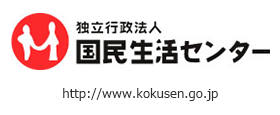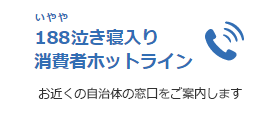Door-to-Door Purchase
Door-to-Door Purchase is a transaction in which a business operator visits a general consumer's residence, and purchases goods.
for more information please visit Act on Specified Commercial Transactions
"Door-to-Door Purchases" subject to the Specified Commercial Transactions Act
1.Definitions (Article 58-4 of the Act)
The term "Door-to-Door Purchases" means the purchase of articles(*2) by a Buyer(*1) at a place other than a store, etc. (for example, the house of a general consumer).
(*1) "Buyer" refers to a person engaging in the purchase of articles as a business. "Engaging as a business" means that transactions are performed repeatedly and continuously with the intention of making a profit. It should be noted that the existence of such intention will be objectively judged regardless of the person's intention.
(*2) This excludes "articles that are found to be unlikely to prejudice the interests of the counterparty of the sales contract" or "articles whose distributions are considered to be hindered considerably" if the provisions of laws concerning Door-to-Door Purchase apply and that are listed in Article 16-2 of Cabinet Order.
For specific examples of these articles, please refer to Appendix 8 of the "Enforcement of the Act on Specified Commercial Transactions, etc."
2.Exclusion from Application (Article 58-17 of the Act)
The following cases are not subject to the Specified Commercial Transactions Act.
- Transactions between business operators
- Contract with a person living overseas
- Door-to-Door Purchases by national or local governments
- Door-to-Door Purchases by a partnership established based on a special law, an employee organization of government employees, or a labor union, to their respective members
- Door-to-Door Purchases by a business operator to its employees
In addition, the following cases are not subject to the Specified Commercial Transactions Act with the exception of some provisions (Article 58-5 of the Act, paragraphs (2) and (3) of Article 58-6 of the Act). (Article 16-3 of Cabinet Order) - Transactions by door-to-door salesmen
- Transactions with so-called regular customers
- Transactions induced by the counterparty of the sales contract at the time when the resident leaves the residence
Control to Door-to-Door Purchases
1.Clear Indication of the Name of the Business Operator (Article 58-5 of the Act)
When a business operator conducts Door-to-Door Purchase, the following items must be notified to the consumer prior to solicitation:
- The name of the business operator
- The fact that its purpose is to solicit the conclusion of a contract
- Type of articles to be purchased
2.Prohibition of Unrequested Solicitation (Article 58-6, paragraph (1) of the Act)
Business operators must not solicit any person who has not requested the solicitation for the conclusion of a sales contract pertaining to Door-to-Door Purchase to conclude said sales contract or check whether said person has a willingness to receive such solicitation, at their residence, etc. Solicitation during an unannounced visit, or solicitation that goes beyond an appraisal when just an appraisal is requested by the counterparty, will be considered to be violation of the Act.
3.Prohibition of Re-solicitation (Article 58-6, paragraphs (2) and (3) of the Act)
When a business operator conducts a Door-to-Door Purchase, the business operator must check, prior to the solicitation, whether the counterparty has a willingness to receive such solicitation.
If the counterparty has manifested the intention not to conclude such contract, the business operator is prohibited from continuing the solicitation during the same visit, or soliciting again at a later visit.
4.Delivery of Documents (Article 58-7 of the Act, Article 58-8 of the Act)
When a business operator received an offer for a contract, or concluded a contract, the business operator must deliver a document containing the following matters to the counterparty
- Type of the articles
- Purchase price of the articles
- Time and method of payment for the articles
- Time at which the articles will be handed over, and method of such handover
- Information about withdrawal of the offer for the contract (cancellation of the contract)
- Information about refusal to hand over articles (Article 58-15 of the Act,)
- Name, address, and telephone number of the business operator, and the name of the representative in the case of a juridical person
- Name of the person in charge of offering or the conclusion of the contract
- Date of the offering or the conclusion of the contract
- Name of the articles
- Features of the articles
- If the articles or their accessories have an indication of a brand name, manufacturer's name, or seller's name, or if they are available in different models, such trademark, manufacturer's name, seller's name, or model type
- If there are provisions on the cancellation of the contract, the details of such provisions
- If there are other special provisions, the details of such provisions
In addition, a note for counterparties to the effect that documents should be carefully read must be written in red and circled with red. The information about cooling-off and the information about refusal to hand over articles (Article 58-15) must also be written in red and circled with red. Moreover, the font size on documents must be 8 points or more (the font size in the official gazette).
5.Notification regarding the Refusal to Hand Over Articles (Article 58-9 of the Act)
When a business operator receives articles directly from the counterparty of a sales contract during the cooling-off period, the business operator must inform the counterparty that the counterparty can refuse to hand over said articles.
6.Prohibited Conduct (Article 58-10 of the Act)
The Specified Commercial Transactions Act prohibits the following unjust acts in Door-to-Door Purchase.
- Misrepresentation in soliciting the conclusion of sales contracts, or to prevent the withdrawal of an offer for the contract (cancellation of the contract)
- Intentional failure to disclose factual information in soliciting the conclusion of sales contracts, or to prevent the withdrawal of an offer for the contract (cancellation of the contract)
- Intimidation to overwhelm a counterparty in order to conclude a sales contract, or to prevent the withdrawal of an offer for the contract (cancellation of the contract)
- Misrepresentation, intentional failure to disclose factual information, or intimidation to overwhelm a counterparty, concerning important information pertaining to the handover of articles such as delivery timing, in order to receive the articles subject to the sales contract
7.Notification to the Counterparty of the Contract regarding the Handover of Articles to a Third party (Article 58-11 of the Act)
If a business operator receives articles from the counterparty of a Door-to-Door Purchase Transaction, and then hands over said articles to a third party within the cooling-off period, the purchaser must make notification of the following matters to the counterparty without delay.
- Name, address, and telephone number of the third party, and the name of representative in the case of a juridical person
- Date of the handover of the articles to the third party
- Type of the articles
- Name of the articles
- Features of the articles
- If the articles or their accessories have an indication of a brand name, manufacturer's name, or seller's name, or if they are available in different models, such trademark, manufacturer's name, seller's name, or model type
- Any other information that will be of reference to the counterparty to know the situation of the articles handed over to the third party
8.Notification to the Third Party the Business Operator Handed Over the Articles to (Article 58-11-2)
If a business operator receives articles from the counterparty of a Door-to-Door Purchase Transaction, and then hands over said articles to a third party within the cooling-off period, the purchaser must make notification of the following matters to the third party in writing, using form No. 5 or form No. 5-2 provided in the Regulations for Enforcement.
- The fact that the articles handed over to the third party are the articles received from the counterparty of the Door-to-Door Purchase Transaction.
- The fact that counterparty is eligible for cooling-off
- Information about the period during which the counterparty can execute cooling off
- Date on which the business operator delivered the document provided in Article 58-8 to the counterparty
- Name, address, and telephone number of the business operator, and the name of the representative, in the case of a juridical person
- Date on which the business operator hands over the articles to the third party
- Type of the articles
- Name of the articles
- Features of the articles
- If the articles or their accessories have an indication of a brand name, manufacturer's name, or seller's name, or if they are available in different models, such trademark, manufacturer's name, seller's name, or model type
*If the counterparty has already executed cooling-off, a note to that effect along with the information listed in items (i), (v) to (x) above must be stated in the document.
9.Administrative Dispositions and Penalties
A business operator who violated the above administrative controls becomes subject to penalties in addition to administrative disposition such as an instruction of business improvement (Article 58-12 of the Act), or a business suspension order (Article 58-13 of the Act).
10.Withdrawal of an Offer for or Cancellation of a Contract (Cooling-off System) (Article 58-14)
Even if a counterparty to a sales contract made an offer for a contract, or concluded a contract in Door-to-Door Purchase, he orthe counterparty she may withdraw the offer or cancel the contract (cooling-off) by writing to the business operator within 8 days after he or she receiveding the documents specified in laws
It should be noted that a counterparty may execute cooling-off even after the above period has passed if the counterparty misunderstood cooling-off, or was overwhelmed so as not to execute cooling-off because of the business operator's misrepresentation about cooling-off matters or the use of intimidation. (The use of certified mail, registered mail, content-certified mail, etc., is recommended for cooling-off in order to avoid future problems).
Furthermore, when cooling-off has been executed, the effect of the cancellation of the contract extends to the third party. (Provided, however, that this does not apply when the third party acted without knowledge and was free from any negligence concerning the possibility of cooling-off).
If the counterparty has already handed over articles to the business operator, or has already received payment, the articles may be returned, or the payment may be refunded at the business operator's expense. The counterparty does not need to refund the interest on the payment, or to pay compensation for damages or a penalty.
11.Refusal to Hand Over Articles (Article 58-15)
A counterparty to a contract of Door-to-Door Sales can refuse to hand over articles subject to the contract to the business operator during the cooling-off period without falling into default.
12.Limitation to the Amount of Damages for the Cancellation of a Contract (Article 58-16 of the Act)
The Specified Commercial Transactions Act specifies that a business operator cannot claim an amount exceeding the following amounts so that the business operator won't be able to claim unreasonable damages when the contract is canceled because of a default by a counterparty to a sales contract, e.g., delay of handover of articles, after the cooling-off period has passed.
- When the payment of the price has already been made by the business operator, the amount equivalent to the price
- When the payment of the price has not been made by the business operator, the amount of costs normally required for concluding and performing the contract
The delinquency charges based on the statutory interest rate of 6% per year is added to these amounts.
13.Demand for Injunction against Business Operator's Conduct (Article 58-24 of the Act)
If a business operator has performed, or is likely to perform any of the following acts to many and unspecified persons, a Qualified Consumer Organization may demand that the business operator discontinue or prevent the relevant conduct, or take any other necessary measures.
- Misrepresentation in soliciting the conclusion of a contract
- Intentional failure to disclose factual information in soliciting the conclusion of a contract
- Intimidation to overwhelm a person to conclude a contract, or to prevent its cancellation
- Misrepresentation, intentional failure to disclose factual information, or intimidation to overwhelm a counterparty, concerning important information pertaining to the handover of articles such as delivery timing, in order to receive the articles
- Act of concluding a contract that includes special provisions which are disadvantageous to consumers, or special provisions against the limitation of the amount of damages for the cancellation of a contract



